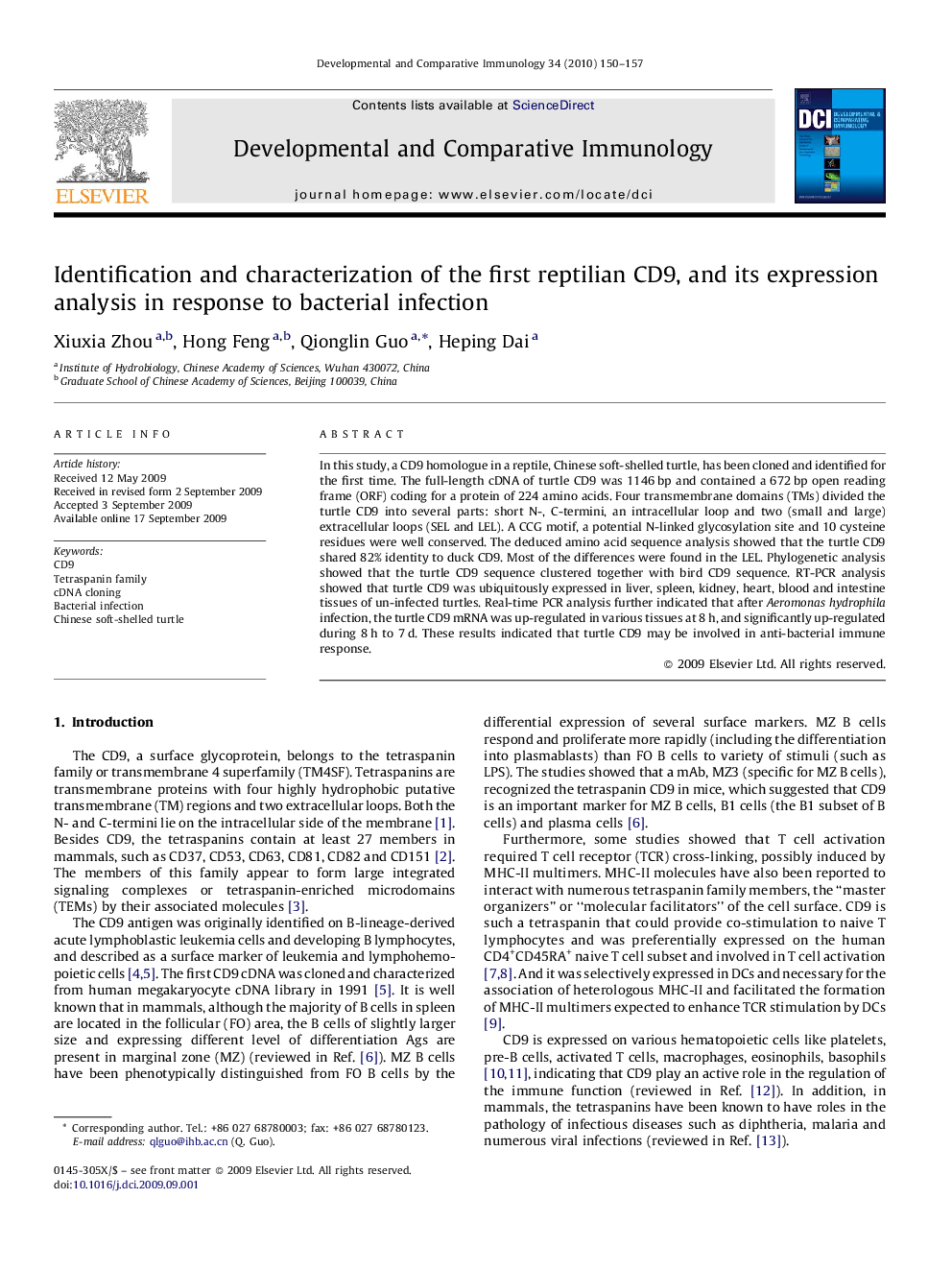| Article ID | Journal | Published Year | Pages | File Type |
|---|---|---|---|---|
| 10971686 | Developmental & Comparative Immunology | 2010 | 8 Pages |
Abstract
In this study, a CD9 homologue in a reptile, Chinese soft-shelled turtle, has been cloned and identified for the first time. The full-length cDNA of turtle CD9 was 1146Â bp and contained a 672Â bp open reading frame (ORF) coding for a protein of 224 amino acids. Four transmembrane domains (TMs) divided the turtle CD9 into several parts: short N-, C-termini, an intracellular loop and two (small and large) extracellular loops (SEL and LEL). A CCG motif, a potential N-linked glycosylation site and 10 cysteine residues were well conserved. The deduced amino acid sequence analysis showed that the turtle CD9 shared 82% identity to duck CD9. Most of the differences were found in the LEL. Phylogenetic analysis showed that the turtle CD9 sequence clustered together with bird CD9 sequence. RT-PCR analysis showed that turtle CD9 was ubiquitously expressed in liver, spleen, kidney, heart, blood and intestine tissues of un-infected turtles. Real-time PCR analysis further indicated that after Aeromonas hydrophila infection, the turtle CD9 mRNA was up-regulated in various tissues at 8Â h, and significantly up-regulated during 8Â h to 7Â d. These results indicated that turtle CD9 may be involved in anti-bacterial immune response.
Related Topics
Life Sciences
Biochemistry, Genetics and Molecular Biology
Developmental Biology
Authors
Xiuxia Zhou, Hong Feng, Qionglin Guo, Heping Dai,
